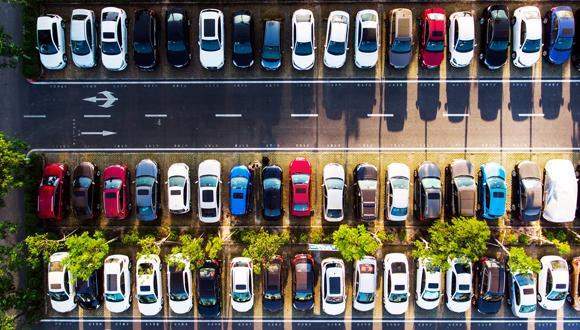Drivers "bidding" for parking spaces could solve parking worldwide
Parking algorithm can relieve pressure on lucrative parking areas, TAU researchers say
Parking is of paramount concern to urban car owners and urban planners. The current arsenal of solutions available to policymakers addressing the increasingly urgent parking shortage in cities around the world includes better public transportation, carpooling incentives, fines for illegal parking and improved infrastructure.
A new Tel Aviv University study suggests that a parking algorithm that allows drivers to "bid" for a curbside spot may guarantee more uniform parking occupancy, filling spots in less lucrative areas and relieving the pressure on high-demand neighborhoods. A smartphone app that uses the algorithm can offer a practical solution to the problem of bottleneck parking in low supply areas and empty lots outside the immediate sphere of demand.
The research was led by Prof. Itzhak Benenson of the Department of Geography and Human Environment at TAU's Raymond and Beverly Sackler Faculty of Exact Sciences and conducted by doctoral student Nir Fulman. It was published in IEEE ITS Magazine.
The perfect price for the perfect spot
"Urban parking prices are now uniform over large urban areas, but this doesn't reflect neighborhood-specific supply and demand," Prof. Benenson says. "Underpricing results in long and often unsuccessful searches for parking in areas where demand exceeds supply, while overpricing leads to low occupancy and hampered economic vitality.
"Our GIS-based Parking Pricing Algorithm, a geography-specific algorithm for establishing on- and off-street parking prices, guarantees a predetermined uniform level of occupation over an entire area."
Several cities around the world have initiated pilot projects that adjust curbside parking prices to occupation in real time. But these projects require street sensors that cost millions of dollars to install and operate.
According to the researchers, the Parking Pricing Algorithm has been tested in the Israeli city of Bat Yam and established real-time adaptive parking prices that guaranteed 90 percent parking occupancy without the installation of heavy and expensive equipment.
"If the number of free spots in one specific area decreases, their price increases. So some of the spots are always vacant, because they end up being very expensive," says Prof. Benenson. "With adaptive prices, a driver who really needs to park close to a destination can now find a space. Any resulting economic inequity is resolved by means of special 'free of charge' permits or discounts. When you have an app that informs you about parking prices when you drive to your destination, you can resolve any number of parking and traffic issues."
Parking as public policy
The researchers studied the parking behavior of drivers in the field and in laboratory experiments, then compared these results with those of simulation models.
"We truly believe that adaptive parking pricing is the future of cities," Prof. Benenson concludes. "This is a mechanism that can stop people from coming into the city centers and searching for a parking spot for hours on end; and nobody would be charged more than necessary. On-street parking is public property and should be managed as public property."
The researchers are now exploring ways of including a balanced parking policy in Israel's Mobility as a Service (MAAS) transport policy, which proposes advantages for public transport users, car-poolers and bikers and could smoothly adopt to autonomous vehicles in the future.





